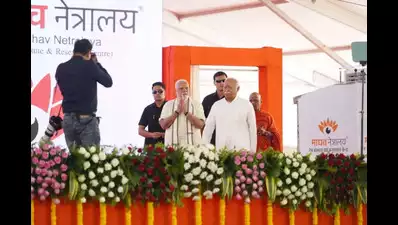Acknowledges organisation’s century-long service, highlights India’s global humanitarian efforts
NAGPUR: Prime Minister Narendra Modi on Sunday lauded Rashtriya Swayamsevak Sangh (RSS) for its contributions to India’s development, highlighting the organisation’s century-long journey and its commitment to national service. In a rare speech devoid of political rhetoric, Modi focused solely on RSS’s legacy and societal impact with Sangh chief Mohan Bhagwat by his side.
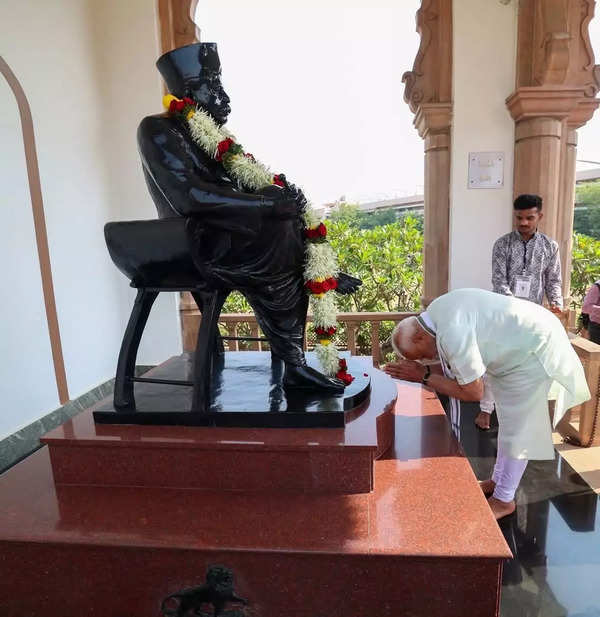
Speaking at the foundation laying ceremony for Madhav Netralaya’s new premises in Hingna, Modi emphasised India’s leadership in humanitarian aid, crediting RSS values for the country’s swift response to global crises. He cited the recent dispatch of relief to Myanmar, following Friday’s earthquake, an effort named Operation Brahma, as an example of India’s proactive assistance to nations in distress. Similar aid had been extended to Turkey, Nepal, and the Maldives, he noted. “Even during Covid-19 pandemic, India supplied vaccines to the world, treating humanity as one family,” Modi said, whose first stop in Nagpur was at the memorial of RSS founder Dr Hedgewar at Smruti Mandir, Reshimbagh. He also visited Deekshabhoomi to pay tributes to Dr Ambedkar.
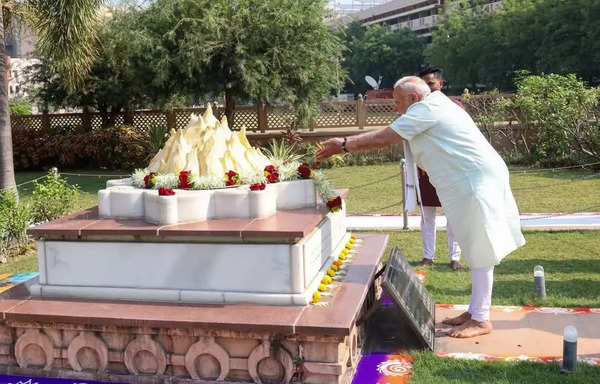
Reflecting on RSS’ history, Modi described the organisation as a pillar of societal service, tracing its evolution from its founding in 1925 to its present role in shaping a ‘Viksit Bharat’ (Developed India). “RSS’ dream of a developed India is taking shape. Over the next year, we have significant milestones to achieve, laying the groundwork for the country’s progress over the next 1,000 years,” he stated.
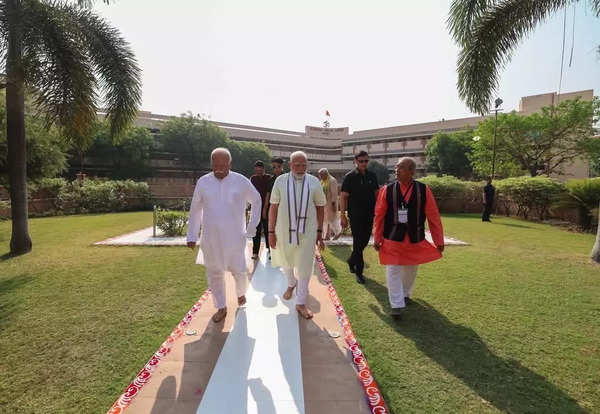
He acknowledged the early struggles of RSS under its founder, Dr Keshav Hedgewar, and commended its volunteers for their continued humanitarian efforts, from disaster relief to assisting pilgrims at religious gatherings. “Their selfless service has been evident in times of floods, earthquakes, and most recently, at the Maha Kumbh,” he added.
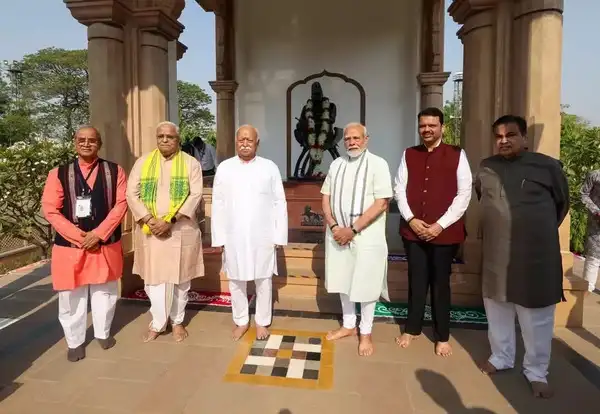
Modi also reiterated his govt’s commitment to erasing remnants of India’s colonial past, citing replacement of the British-era Indian Penal Code with Bharatiya Nyaya Sanhita, and renaming of Rajpath in Delhi to Kartavya Path. He also mentioned renaming of islands in the Andaman and Nicobar archipelago after nationalist icons like Vinayak Savarkar and Subhas Chandra Bose.
Sharing an anecdote about MS Golwalkar, a former RSS chief, Modi recalled how Golwalkar described the organization as an all-encompassing force for social good. “If there is darkness in society, RSS ensures there is light so others can continue their work,” Modi quoted him as saying.
The prime minister also underscored the role of youth in nation-building, calling them the “beacons of Viksit Bharat.” He pointed to their contributions in the global startup ecosystem as a testament to India’s growing influence on the world stage. “A new chapter is being written in our country’s history,” he declared.
Earlier, RSS chief Mohan Bhagwat reflected on the organization’s century-long commitment to national service. “What began in Ramtek has now reached Madhav Netralaya,” he said, before succinctly concluding, “I won’t take much of your time—I know everyone here is eager to hear the prime minister.” CM Devendra Fadnavis congratulated Madhav Netralaya for the new upcoming hospital and praised RSS’ service-oriented outreach.

